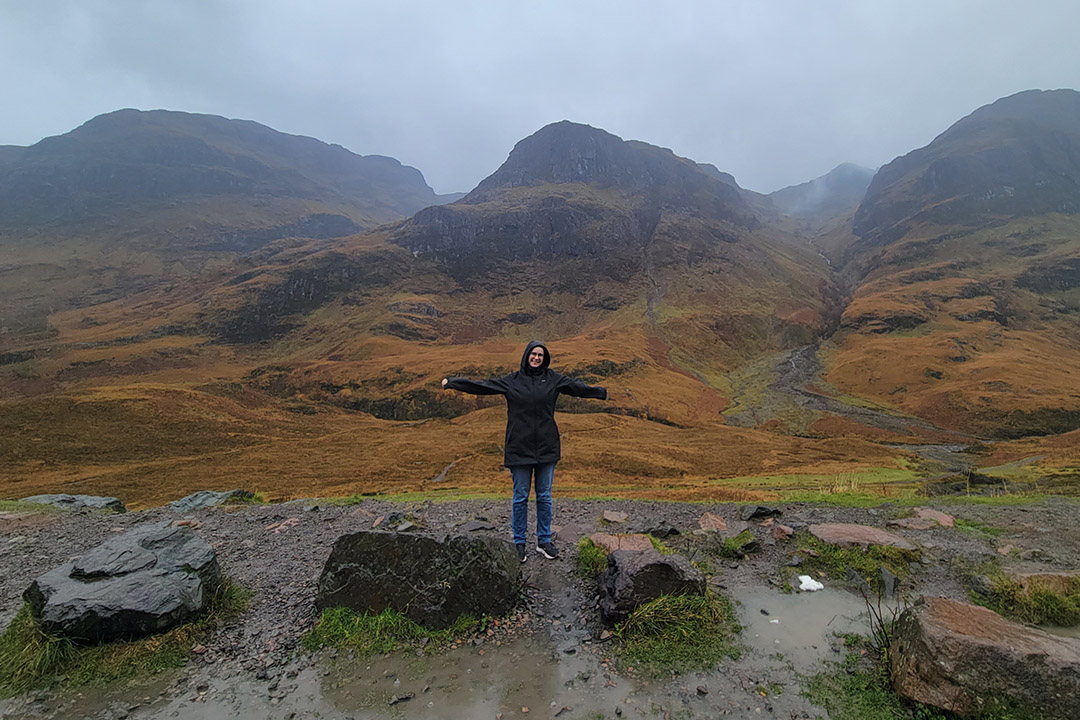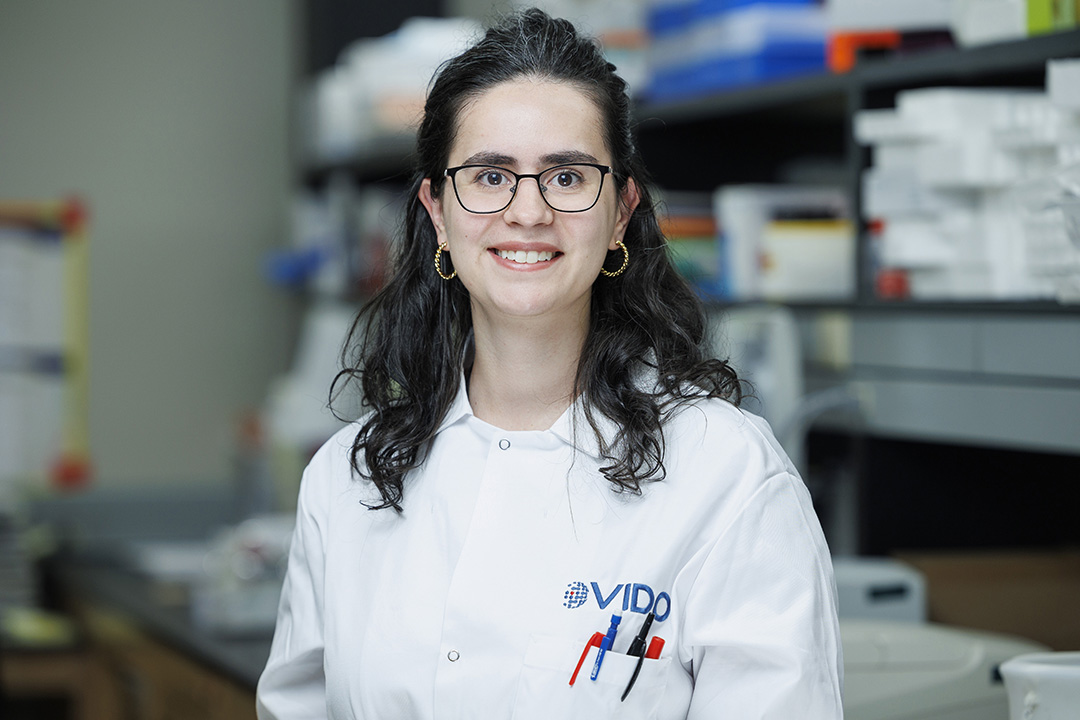
USask PhD student takes animal pathogen research international with journey to Scotland
In a research journey that has taken her all the way to Europe, a University of Saskatchewan (USask) doctoral student is investigating the functions and effects of different infectious diseases in animals – and how these could potentially be combatted with vaccines.
By BROOKE KLEIBOERKezia Fourie is a PhD student researcher at the Vaccine and Infectious Disease Organization (VIDO) at USask, where she has had the opportunity to investigate Lawsonia intracellularis, a bacteria found in pig barns around the globe that mainly infects the intestines of pigs, but also has impacts on many other species.
“During infection, pigs gain weight at a slower rate than healthy pigs, leading to economic losses through poor feed efficiency, increased husbandry costs and mortality in severe cases,” said Fourie, who is pursuing her PhD under the supervision of Dr. Heather Wilson (PhD), a research scientist at VIDO and an adjunct professor of veterinary microbiology at the USask Western College of Veterinary Medicine.
Fourie serves as part of a VIDO research team developing a subunit vaccine for ileitis, inflammation of the stomach that can be caused by the Lawsonia intracellularis bacteria. A subunit vaccine uses only parts of a whole bacteria to build immunity in a host (the organism infected by the pathogen). The vaccine is still in development but has potential to be the first subunit vaccine that exists to protect pigs from this particular bacteria.

As her research and learning has progressed throughout her PhD program, Fourie became interested in the opportunity to study abroad and experience international collaboration in vaccine research.
“A big part of research is continuously learning, expanding your network, learning to be adaptable, and more,” she said. “Doing research abroad is a great way to do all of those things while also having the experience of being in a different country.”
She approached her supervisor to see if an international research opportunity was possible, and eventually ended up applying for research funding through Mitacs to pursue a similar animal pathogen study at the Roslin Institute (RI) in Edinburgh, Scotland, on a collaborative project with the Moredun Research Institute, also located in Scotland.
Her project at RI focused on Toxoplasma gondii, “a pathogen of cats that can infect a wide variety of species including humans and sheep,” she said. “Toxoplasma gondii is a major foodborne illness found in all corners of the globe that can infect humans and almost all animals. Currently, there is no vaccine available for use in humans to prevent disease caused by this pathogen.”
Although there is only one species of T. gondii, there are many strains of the parasite with varying degrees of severity resulting in different disease outcomes, she said.
This research work focused on studying the interactions that occur between the host and the pathogen. Fourie helped to analyze different protein samples produced by the host to further understand how different strains of this pathogen can cause more severe disease than others.
“When a human or animal is infected [with T. gondii], the host may not feel sick at all, may have mild flu-like symptoms, or may die from serious complications,” said Fourie. “Knowing information like this is important in helping humans and animals affected by this pathogen.”
Her advice to anyone thinking of pursuing studies abroad during their education? If you have the opportunity, take the chance.
“While the idea of going abroad can be daunting, I learned that the experience is largely what you make of it,” Fourie said. “I went in with the attitude of I was going to try everything and make the most of my time. I said yes to everything that came my way – and that was the smartest decision I could have ever made.”
Besides the chance to bring her expertise to a new research project during her PhD, Fourie was also offered the chance to share her own knowledge of working with bacteria and parasites by presenting her research work from VIDO to fellow researchers in Scotland.
“The internship in Scotland provided the opportunity to broaden my skill set and research network,” she said. “I worked with different pathogens and received training in new computational techniques—different but complementary to the vaccine development work I am involved in at VIDO.”
Next up for Fourie is completing her PhD research at VIDO, which she hopes to do by 2025, and then continue on her research journey in a post-doctoral position.
“I’m always looking for new opportunities to learn and explore,” Fourie said. “That combined with my love of reading made research the best door for me. You never know where the road leads.”
Fourie’s research with the Roslin Institute was supported by a Mitacs Globalink Research Award, while her PhD program at USask has been funded by the Natural Sciences and Engineering Research Council of Canada and a USask Dean’s Doctoral Scholarship.
This article first ran as part of the 2024 Young Innovators series, an initiative of the USask Research Profile and Impact office in partnership with the Saskatoon StarPhoenix.
Together we will support and inspire students to succeed. We invite you to join by supporting current and future students' needs at USask.

